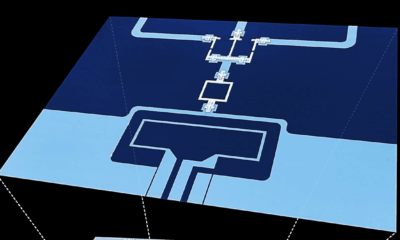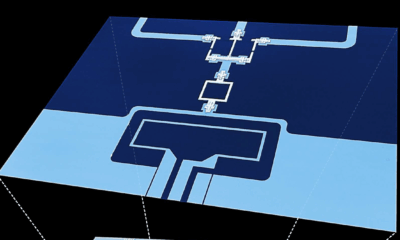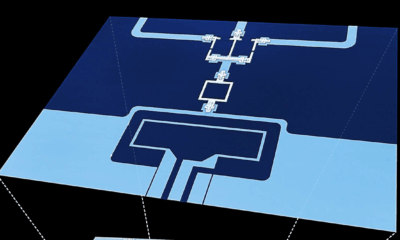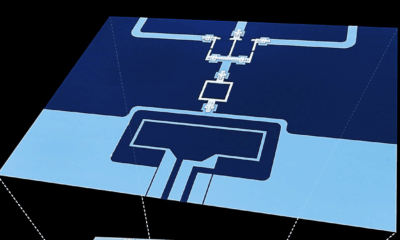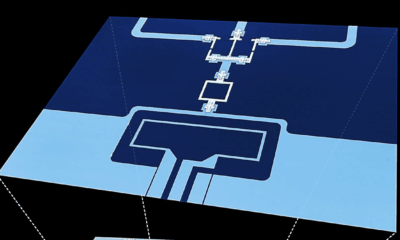Science
Nobel Prize in Physics Honors Groundbreaking Quantum Research
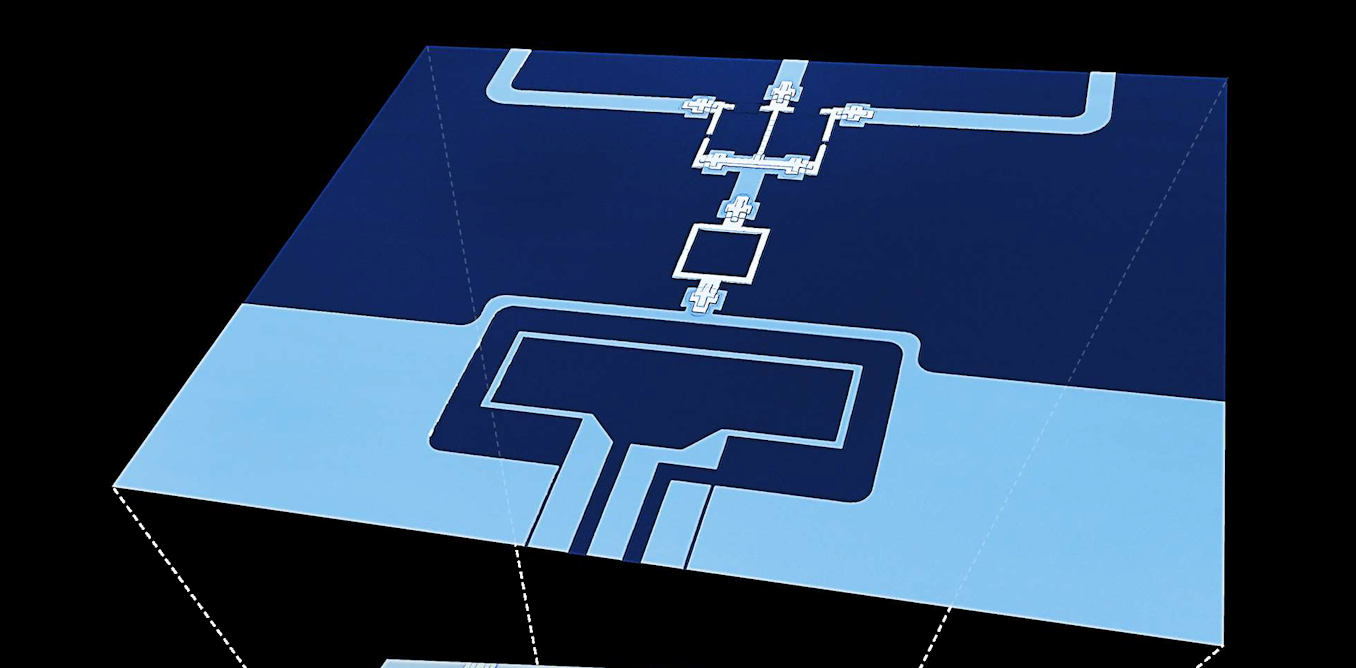
The 2025 Nobel Prize in Physics has been awarded to three pioneering scientists for their transformative research into superconducting circuits, a critical development in the field of quantum technology. This groundbreaking work has enabled practical applications of quantum computing, paving the way for advancements in areas such as chemistry and cryptography.
The laureates, John Martinis, Michel Devoret, and John Clarke, made significant strides in understanding how even large electrical circuits can exhibit quantum behavior. Their research, conducted in the mid-1980s, demonstrated that superconducting circuits could operate under the principles of quantum mechanics. This discovery has profound implications for the future of computing, allowing researchers to tackle complex problems that exceed the capabilities of classical computers.
Key Discoveries in Quantum Behavior
Their initial studies involved circuits made from niobium and lead, which become superconductors when cooled to just above absolute zero. A superconductor is a material that can conduct electricity without generating heat, a fundamental characteristic that the laureates exploited. They showed that these superconducting circuits have quantized energy levels, meaning they can exist in multiple states simultaneously, a concept known as superposition.
This groundbreaking work revealed that superconducting circuits could be described as single quantum particles, simplifying their behavior and enhancing their utility in technology. Today, these circuits are instrumental in various applications, including fundamental physics research, the simulation of complex systems, and the development of ultra-sensitive sensors. For instance, the Devoret group has created a near-ideal microwave amplifier based on superconducting technology, while Martinis’s team has emulated electron-like particles using superconducting circuits, a crucial technique in studying fundamental physics.
Advancements in Quantum Computing
The most significant application of superconducting circuits lies in quantum computing. Multiple quantum systems can interact and become entangled, behaving as a unified system. This feature, combined with quantization and superposition, grants quantum computers their extraordinary computational power.
In quantum computing, the basic unit of information is the quantum bit, or qubit. These qubits must maintain coherence, allowing them to remain in a specific state without disruption. They also require controllability, enabling researchers to manipulate their states and interactions, and scalability to produce a large number of qubits for practical applications.
Superconducting circuits meet these requirements effectively. Their design flexibility allows researchers to create qubits with desired behaviors, making them easier to control and more reliable than other potential quantum technologies, such as trapped atoms or ions.
Current research includes exploring new types of superconducting qubits and ways to enhance their coherence and control. Academic institutions, alongside government laboratories and companies, are applying these findings to engineer large-scale quantum processors for real-world use.
The contributions of the Nobel laureates extend far beyond their initial discoveries. John Martinis has previously led the Google quantum processor initiative and now runs his own company. Michel Devoret continues to work with Google, while John Clarke has a rich history in the field, influencing numerous researchers and projects.
As the scientific community celebrates this achievement, the impact of their work will resonate for years to come, inspiring future generations of researchers in the pursuit of quantum technology. The legacy of these pioneering scientists serves as a reminder of the profound potential of quantum mechanics to revolutionize technology and solve complex problems across various disciplines.
-

 World1 week ago
World1 week agoPrivate Funeral Held for Dean Field and His Three Children
-

 Top Stories2 weeks ago
Top Stories2 weeks agoFuneral Planned for Field Siblings After Tragic House Fire
-

 Sports3 months ago
Sports3 months agoNetball New Zealand Stands Down Dame Noeline Taurua for Series
-

 Entertainment3 months ago
Entertainment3 months agoTributes Pour In for Lachlan Rofe, Reality Star, Dead at 47
-

 Entertainment2 months ago
Entertainment2 months agoNew ‘Maverick’ Chaser Joins Beat the Chasers Season Finale
-

 Sports3 months ago
Sports3 months agoSilver Ferns Legend Laura Langman Criticizes Team’s Attitude
-

 Sports1 month ago
Sports1 month agoEli Katoa Rushed to Hospital After Sideline Incident During Match
-

 World2 weeks ago
World2 weeks agoInvestigation Underway in Tragic Sanson House Fire Involving Family
-

 Politics2 months ago
Politics2 months agoNetball NZ Calls for Respect Amid Dame Taurua’s Standoff
-

 Top Stories2 weeks ago
Top Stories2 weeks agoShock and Grief Follow Tragic Family Deaths in New Zealand
-

 Entertainment3 months ago
Entertainment3 months agoKhloe Kardashian Embraces Innovative Stem Cell Therapy in Mexico
-

 World4 months ago
World4 months agoPolice Arrest Multiple Individuals During Funeral for Zain Taikato-Fox



